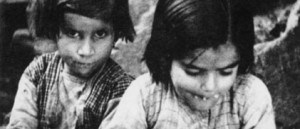From the Chicago Reader (November 1, 2000). — J.R.
Land Without Bread (1932), Luis Buñuel’s only documentary, examines the hopeless living conditions of an impoverished village in western Spain; Ramon Gieling’s 73-minute Dutch documentary The Prisoners of Buñuel reveals what the village’s people think of the film 60-odd years later, and while it’s hardly the last word on Buñuel, it does offer a thoughtful and provocative reflection on the intricate cross-purposes of life and art — not to mention accuracy and truth. One can’t necessarily believe everything the villagers say about the film, especially because some of them contradict one another. But conversely, to take Buñuel’s masterpiece entirely at face value would be to misread it: it’s a metaphysical statement more than anything else, and its offscreen narration mocks the touristic documentary in countless ways. It’s impossible to evaluate The Prisoners of Buñuel adequately if you haven’t seen Land Without Bread, and Gieling, who jokingly draws attention to the way portions of his own documentary are staged, seems well aware of the problem. (Several extracts appear when he screens the film in the village square, but hardly enough to allow for any final verdict.) Unfortunately this U.S. premiere, which Gieling will attend, doesn’t include Land Without Bread on the program, but Facets Multimedia Center will show it on Friday, November 17, as part of a Buñuel retrospective.

